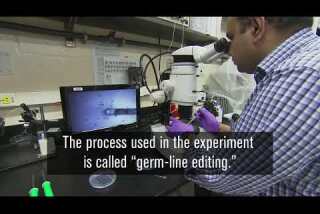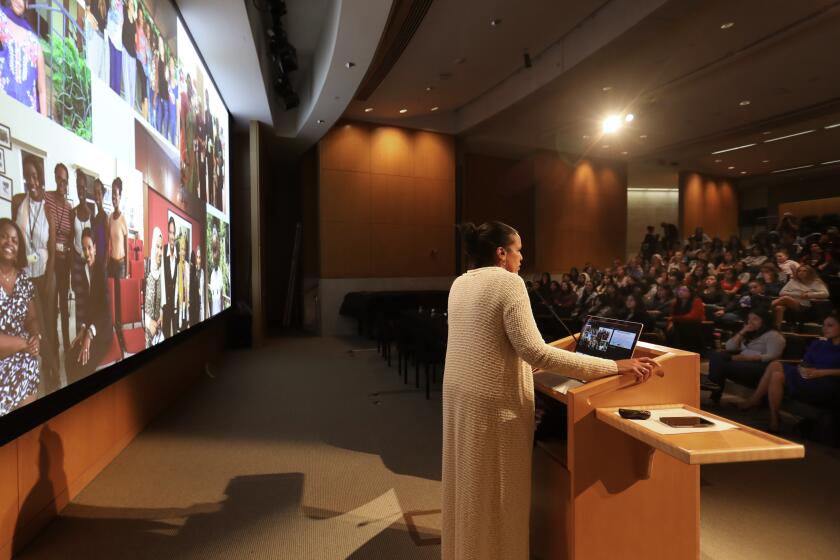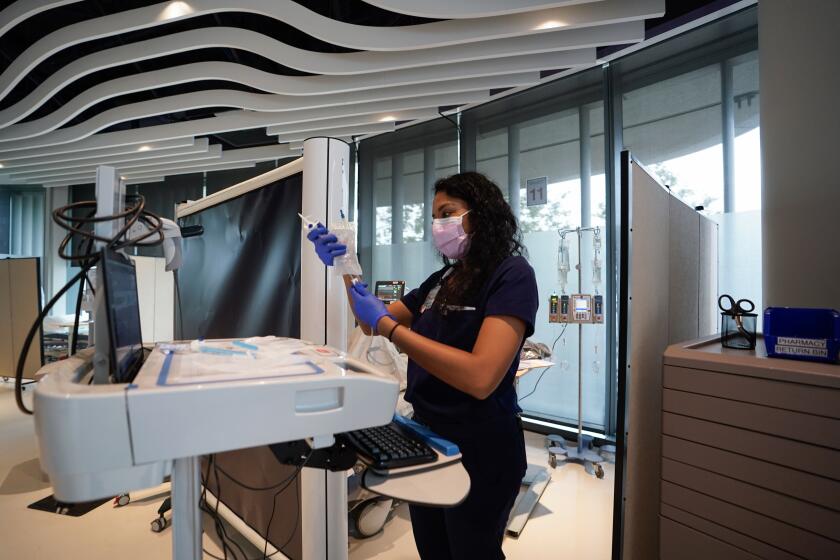As Alzheimer’s knowledge grows, explaining risk becomes more complicated

panel of experts discusses the PBS NOVA program Can Alzheimer’s Be Stopped? and the disease itself. Join Kenneth Kosik, MD (Co-Director Neuroscience Research Institute UC Santa Barbara), Sarah Holt (Producer and Director HHMI/Tangled Bank Studios),
Alzheimer’s disease used to be thought of as something you either have or you don’t. If you have it, your mind is already deteriorating, and there’s nothing you can do about it.
But in recent years that clear-cut definition has gotten more fuzzy. Doctors think more in terms of risk factors for the disease, which may predispose an individual to getting the disease to a greater or lesser degree. Brain scans can now detect elevated levels of the beta amyloid protein known to be involved in Alzheimer’s, putting them into a high-risk category.
And the very definition of Alzheimer’s itself is changing. Researchers increasingly see the disease as a decades-long process, in which actual mental deterioration is the final stage. In other words, people who have Alzheimer’s may live for many years with normal mental function. And if another disease or injury intervenes, they may even die with their faculties intact.
This has created a paradox: We know more about Alzheimer’s disease than ever before, yet communicating that knowledge and its subtleties to patients has become a growing challenge. That’s the theme of a new study on how seniors take the news that they have an elevated risk of Alzheimer’s.
Researchers examined the reactions of those who were told they had elevated brain levels of beta amyloid, as part of their enrollment in the massive Anti-Amyloid Treatment in Asymptomatic Alzheimer Study, or A4. The study continues, although it is no longer accepting new participants.
Study results from University of Pennsylvania researchers were published Monday in an article in JAMA Neurology. Dr. Jason Karlawish was senior author; the first author was Jessica Mozersky. Go to j.mp/alzriska4 for the study.
The placebo-controlled A4 trial seeks to test the Alzheimer’s drug solanezumab on those with elevated amyloid who are cognitively normal. The hope is that the disease process can be stopped before symptoms occur. This approach comes after multiple failures of Alzheimer’s drugs, including solanezumab, in those in whom cognitive impairment has already occurred.
Most of the 50 A4 trial subjects surveyed for the JAMA Neurology study said they understood that elevated amyloid meant they had “an increased but uncertain risk” of developing Alzheimer’s. But 20 wanted more detailed information.
“Some desired understanding of the term elevated other than its being a categorical result enabling trial entry eligibility; they wanted information regarding how elevated their amyloid was, how close to the study threshold they were, or percentages, numbers, or a scale to help them make sense of the result,” the article stated.
“Clinicians and researchers need to understand how participants comprehend this information, because knowing it may generate clinical and ethical problems, including the potential for misunderstanding, discrimination, stigma, depression, anxiety, and, in the most extreme cases, suicide in the face of a debilitating disease with no treatment,” the article stated.
This problem is inherent in the design of the A4 trial, according to an accompanying editorial by Dr. Winston Chiong of the University of California San Francisco. Since only those with elevated amyloid levels are admitted to the trial, all participants know their amyloid status.
Use of amyloid tests may spread from a strictly research role to normal clinical use if evidence mounts that early intervention, such as with solanezumab, actually changes the course of the disease, Chiong said. But more work remains before this can happen.
“What is clear is that, with the advance of molecular diagnostic tools in neurology, clinicians and investigators will increasingly be faced with the challenge of presenting patients with information of uncertain prognostic significance,” Chiong said.
“The investigators of the A4 study are to be commended for developing a thoughtful process of disclosure for predictive biomarker findings, and Mozersky et al have performed valuable work in subjecting this disclosure process to further critical scrutiny.”
For further reading
Ionis begins human trials of Alzheimer’s drug
Alzheimer’s genetic test improves risk estimate
Alzheimer’s begins long before symptoms of memory loss appear, study suggests
Alzheimer’s drug may have mild effect on disease
Alzheimer’s drug failure clouds hopes for treatment
Alzheimer’s advances on the horizon
UCSD to take part in key Alzheimer’s trial
Alzheimer’s drug results disappointing, but spin varies
Baxter drug fails to slow Alzheimer’s in big study
Science Playlist


In a first, scientists rid human embryos of a potentially fatal gene mutation by editing their DNA

10 interesting facts about Mars

Kids can add years to your life

LA 90: SpaceX launches recycled rocket

Ocean temperatures warming at rapid rate, study finds
bradley.fikes@sduniontribune.com
(619) 293-1020
Get U-T Business in your inbox on Mondays
Get ready for your week with the week’s top business stories from San Diego and California, in your inbox Monday mornings.
You may occasionally receive promotional content from the San Diego Union-Tribune.








